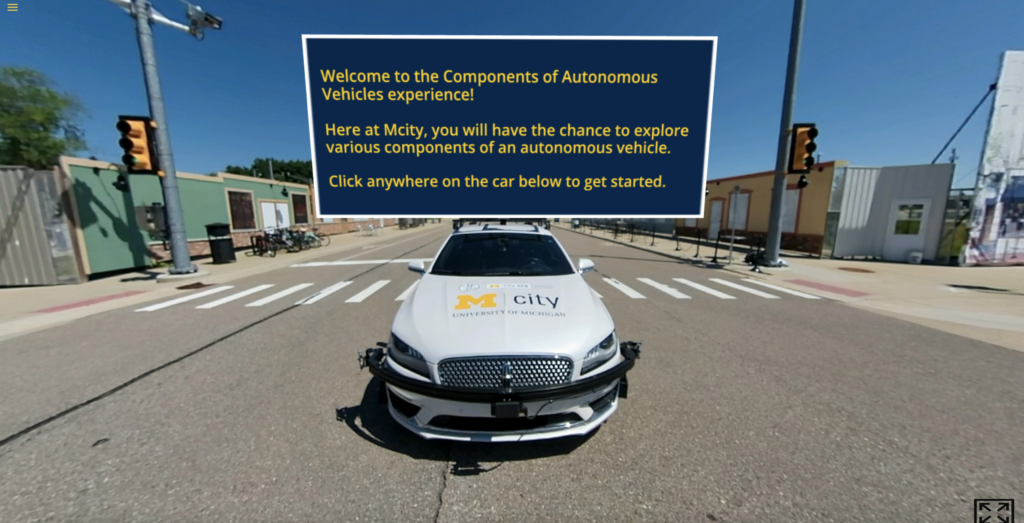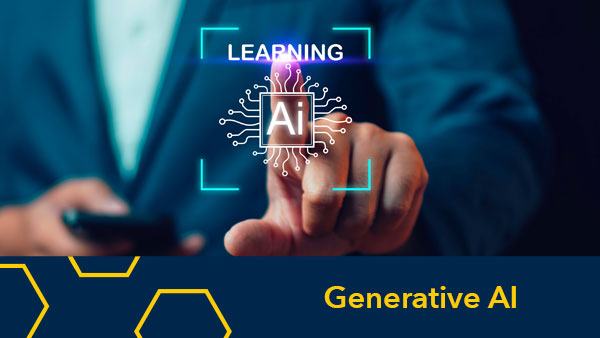
First three of 10 planned XR courses feature immersive experiences to encourage practice, skill-building and comprehension
Sean Corp, Content Strategist
The Center for Academic Innovation and Coursera have launched the first three in a set of 10 planned online learning opportunities that integrate extended reality technologies into the learning experience.
The center and other institutions have used virtual, augmented and mixed reality, but this is the most comprehensive effort to harness the power of extended reality technology to provide more immersive and impactful learning experiences at scale, said the center’s founding executive director James DeVaney.
“These courses allow people to explore virtual environments, learn skills essential to professional success in the future of work, and practice those critical skills in an immersive setting,” said DeVaney. “This initiative leverages our strengths in design and storytelling as we bring immersive learning to scale in the service of innovative workforce development and lifelong learning. We’re excited to once again expand our partnership with Coursera as we continue to advance the global learning skills revolution.”
The center took a deliberate approach as it built plans to commit to building these immersive learning experiences, which included an emphasis on access and inclusion. This led the center to focus the initial launches on interactive 360 video and to identify courses across a variety of professional disciplines. The 360 video experiences are supported and accessible by desktop, mobile device or headset, meaning no additional equipment is needed and learners can choose the technology available and most comfortable to them. The three courses teach learners professional skills in established and growing fields, including public speaking, reducing bias in health care delivery, and the future of mobility.
The interactive 360 videos allow learners to be immersed into a real-life scenario and practice fundamental skills in a contextualized learning environment. It also allows learners to understand learning concepts spatially and visually and explore environments that otherwise might not be accessible to them.
Extended reality-enhanced courses available now are “People, Technology, and the Future of Mobility,” “Advancing Health Equity: A Guide to Reducing Bias in Healthcare,” and “Feedback Loops: Feedback Fundamentals” within the multi-course series “Feedback Loops: How to Give and Receive High-Quality Feedback.”
The “Future of Mobility” course was created with Liz Gerber, professor of public policy, Gerald R. Ford School of Public Policy. Gerber explores the major technological innovations in the mobility space and asks learners to consider the potential social impact of these technologies.
The “Advancing Health Equity” course was created with a faculty team led by Ebbin Dotson, assistant professor of health management and policy, School of Public Health. The course provides an interactive bias training that puts learners in scenarios where they witness or experience bias in healthcare. It is designed for current or future health practitioners and health professionals.
“Feedback Loops” is the latest course series from Patrick Barry, program director of writing and academic support and a clinical assistant professor of law, Law School. Barry teaches learners how to give and receive quality feedback. Learners can select from a number of physical settings and speech styles to practice the art and rhythms of giving a short speech.
“Watching the final version of the XR 360 case was amazing. The actors were great, the writing was clear and impactful, and XR enhanced a number of the behavior nuances that are impossible to teach in a traditional mode of instruction,” said Dotson.
Future courses will utilize additional aspects of extended reality technology including virtual reality, augmented reality and virtual production to support contextualized learning. Additional XR-enhanced experiences are currently on track to launch in mid-2023, and the range of 10 courses will cover topics including leadership, educational course design, nursing education, mindfulness, and negotiation.


